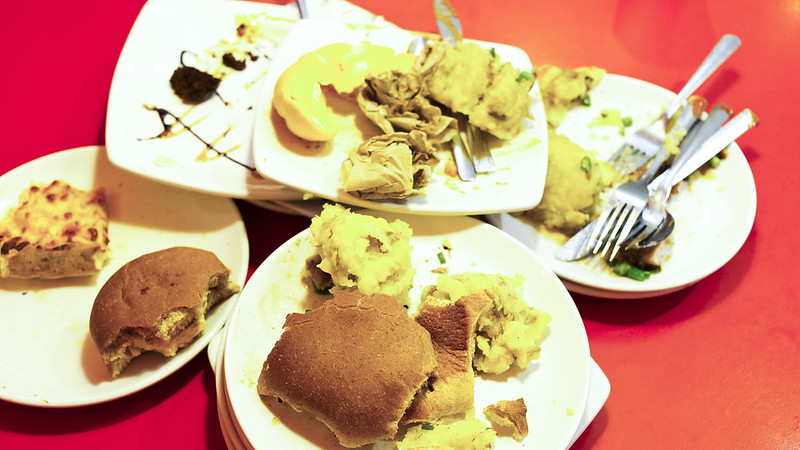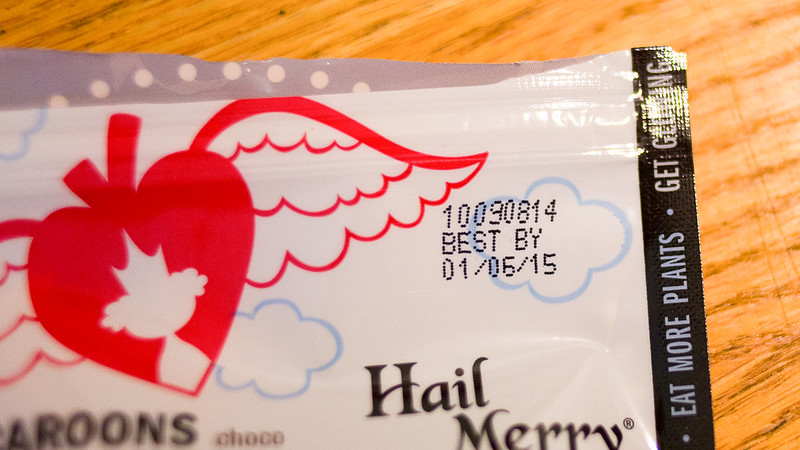Seeing the conveyor belt on my way out of Douglass Dining Center, I can’t help but feel disappointed, even disgusted. There’s a plate with three untouched chocolate chip cookies, a full bowl of cereal, a half-eaten sandwich and an endless number of other foods headed straight for the garbage. I wonder, “How can people allow themselves to be so wasteful? Doesn’t everyone love food?”
Fact is, most people are just oblivious to the concept of food waste because they don’t suffer any consequences from throwing food away in our all-you-care-to-eat dining centers. Those of us who have never experienced food insecurity only know food as something that exists in abundance. When there’s no concern about having access to food for dinner, there are no qualms about discarding an unfinished meal. However, if you look at the facts, you’ll quickly realize how dire of a problem food waste is—environmentally, economically and ethically. You’re throwing out food that you’ve paid for, that could probably feed someone else, that has incurred high energy costs to reach your plate and that will unfortunately end up in a landfill. It’s simply unjustifiable.
While I recognize that there is no way to completely eliminate food waste, every attempt to minimize it counts. These are some tips for you to easily prevent waste while at college:
In the Dining Halls:
Know Your Options
Few things generate more disappointment than picking up a mediocre slice of pizza and rounding the corner to see a mouthwatering plate of fettuccine Alfredo. Many students divert this remorse by simply adding the enticing pasta to their meal—or, rather, eating the plate of pasta and two bites of pizza, the rest of which then goes to the garbage. Simply look at the menus posted outside the dining hall or on Campusdish (which, admittedly, tend to be inaccurate) or walk by all of the stations before you take any food to prevent this regret-waste cycle.
Sharing is Caring
Eating is a very social thing, especially in college, where being surrounded by people with food can tempt you to take more food than you will actually eat. So, if several dishes look appetizing, ask your friends if you all want to split plates.
Take Pride in Pickiness
If you already know that you don’t want the side of rice with your burrito, politely ask the dining hall worker for just a burrito. Is that so hard?
You Can Take It With You
There’s no shame in bringing Tupperware to the dining hall when you’re paying for such an expensive meal plan—get your money’s worth of food by bringing some back to the dorm. A Clamshell, napkin, or cup can also do the trick.
In the Dorm:
In Sight, In Mind
If you’re the kind of person who tends to forget about what you have in your fridge, find some way to remind yourself that there’s food that needs to be eaten. Try putting a post-it note near your door or setting phone reminders around mealtimes so you don’t go buy something in addition to what you already have. Simply remembering that food is there can save it from going bad.
Don’t Save the Date
Use by, sell by, best by, guaranteed fresh until—food date labels can be pretty perplexing. Most are overly cautious, so, to avoid disposing of perfectly edible food, it’s best to go by guides like these and your five senses. That being said, dates can also be helpful incentives to finish food sooner.
Sharing is Caring 2.0
Take turns with your roommates buying staple groceries such as eggs, milk and bread so that these communal foods get finished before they go bad.
Keep it Chilly
While some foods don’t belong in the fridge, there are plenty that can have their shelf-life extended via refrigeration or even freezing. Popping the food in the microwave for a few seconds is a small price to pay in exchange for saving food from the dumpster.
Read up on food waste!
What Exactly is Sustainable Eating?
5 Foods That Are Still Good Past Their Expiration Dates
Freeganing 101
From Farm to Landfill: Food Waste in the United States
Student Spotlight: Food Recovery Network





